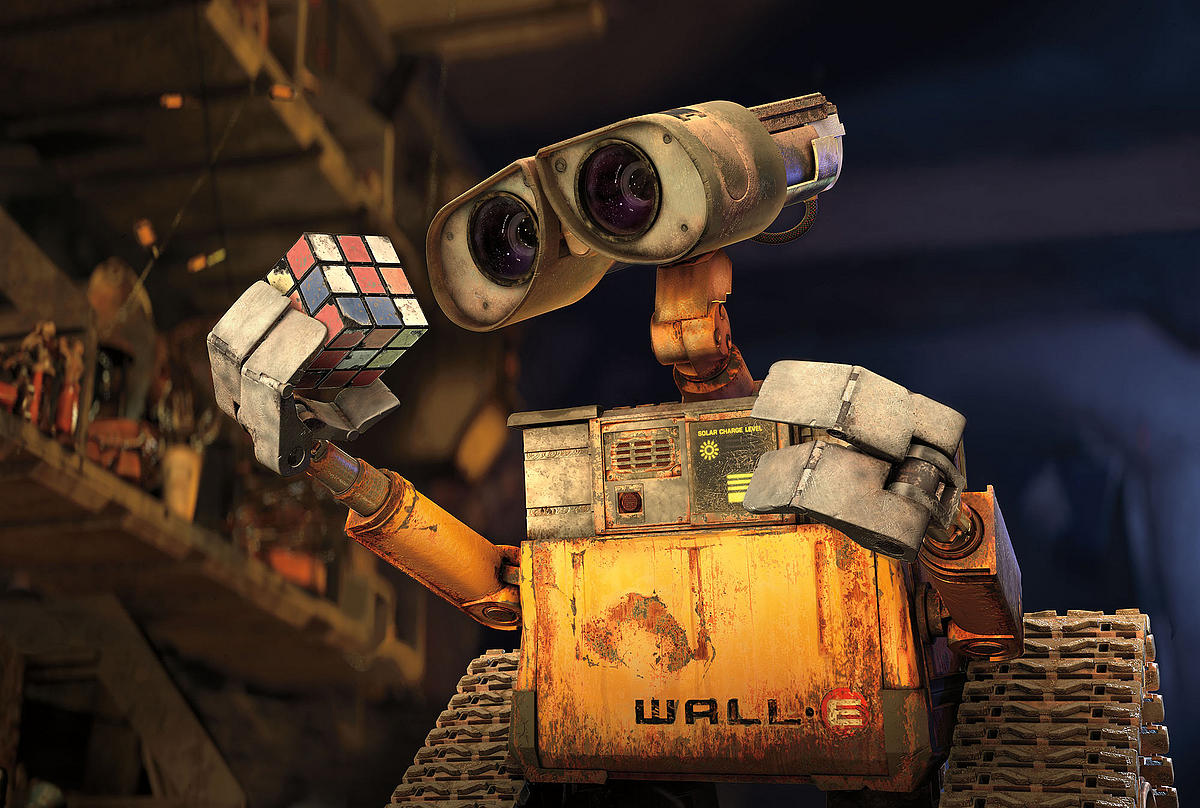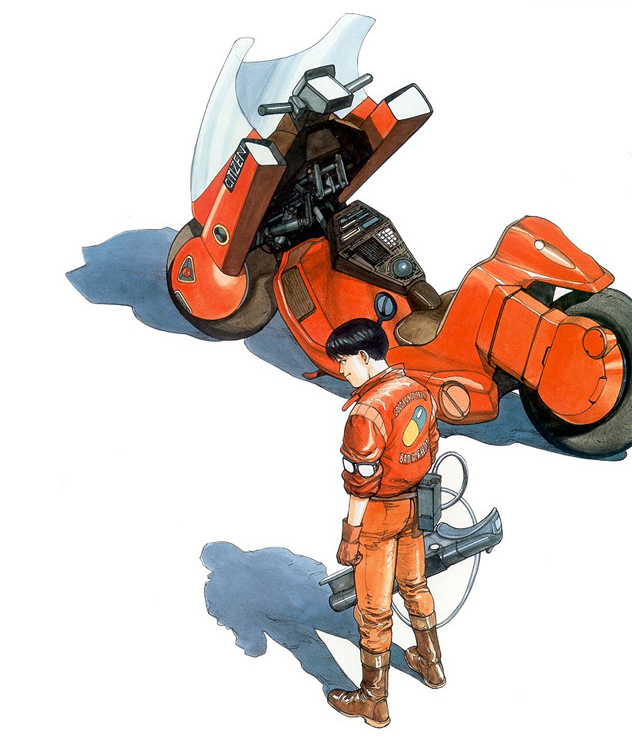
Before I get into the list, I think a distinction between dystopian and post-apocalyptic films is necessary. Both classifications have been run together too often in recent years to the point that they’re nearly indistinguishable. However, a good understanding of cinema requires clear and distinct earmarks of each genre, and that will lead to a rich & robust discourse.
The Dystopian genre is distinguished by a lack of a specific global catastrophe that dramatically impacted society, for it is more about a possible future our society could bring about, while an Apocalyptic or Post-Apocalyptic one is about the fallout, how human beings cope in the aftermath.
The Dystopian genre is clearly a sociological critique that sometimes includes humanist elements in which the main character discovers a fatal flaw within his/her so-called utopia. Society has reached some social perfection or transcendence at the expense of something important – be it a class, loss of individual freedom or abdication of human nature. The post-apocalyptic genre leans closer to the ecological critique in which the environment has become the antagonist, an inhospitable place, because civilization no longer offers a safe haven for the self-interested activities of man.
As I made the list, I was shocked to discover how many great dystopian films there were, and how few good post-apocalyptic ones existed. The built-in advantage of cinema to portray a possible world should not matter to either genre. Then again, dystopian films are often deeper on a philosophical level than the post-apocalyptic, thematically. The best dystopian films are listed here.
Best Post-Apocalyptic films

Long after mankind has abandoned a trash-filled Earth for luxurious lifestyle aboard spaceships, a Waste Allocation Load Lifter – Earth Class cleans up the mess. WALL-E eventually develops a personality, collects trinkets, and eventually encounters others. The first 45 minutes is easily the finest I’ve ever seen on film. A fantastic critique of consumer culture that is also secretly a nostalgia for things. Beneath the environmental destruction is a fondness for consumer goods, complicating the overt critique of consumerism.

The gold standard that determined the post-apocalyptic world in the 80s as post-nuclear Australian world, filled with leather and spikes and belts, the slap-dash vehicles and that razor boomerang. The film is basically an allegory of human life without oil where a vicious marauding gang attacks a group because they operate the only oil refinery for miles in a depopulated world. The best of the Mad Max trilogy, it combined the classic western archetype of the wandering stranger who walks in town and helps out.
A classic anime masterpiece based on a great manga that chronicles the competition between rival biker gangs as they speed through a post-nuclear version of neo-Tokyo. However, the cyberpunk gang members are interrupted by children with psychic abilities and they awaken a dormant super-human force that goes out of control.

Indeed a post-apocalyptic film, since the true reality consists of a wasteland filled with dominant machines that employs human beings as batteries. A computer hacker discovers the true nature of the Matrix, and finds his destiny as the One and joins an underground resistance society against the machines.

A violent post-apocalyptic world filled with people infected with a virus that drove them to a murderous rage. A terrific homage to zombie and invasion films like Dawn of the Dead and Omega Man, 28 Days Later… is a relentless thrill-ride that does not let up until the final frame.

One of the most bleak and depressing films of all time where a survivor and his son travel south for less inhospitable climate in order to find solace from a world ravaged by an unspecified nature. With starvation and cannibalism right around the corner, The Road is an endurance test for anyone.

An early dystopian film that succeeded at the box office, it included a terrific social commentary where a group of astronauts land on a world populated by civilized apes. The ape world is totalitarian and has a caste system, and they treat the humans as inferior species. Upon escape, the lone survivor flees to a forbidden zone and realizes he landed on [SPOILER] an post-apocalyptic Earth.
Honorable mentions
The only reason this does not qualify on either list is because it spends more time in the modern day than it does in its post-apocalyptic future of a depopulated world.
An exceedingly ambitious scifi action film where the oceans swallow the world, and a certain individual holds the key to the future of the human species.

I actually thought The Road was garbage – both as a stand-alone film, and in relation to the novel on which it was based.
As a stand alone film, I took issue with Kodi Smit-McPhee as the child, and this largely had to do with his constant crying, screaming, and basically childlike ignorance despite essentially being born and raised in a post-apocalyptic world. Although I can see why the kid would have major issues, being desensitized to this world would probably render him more equipped to deal with horrors than his father. In the novel, the boy is sage-like and calm. He bears the markers of a child but his trauma is writ clear without reducing him to a blubbering, helpless mess – the mess that Kodi Smit-Mcphee portrays. This was my main issue with the film.
In films like Le Temps du Loup (Time of the Wolf) where children have been raised in similar traumatizing experiences, we see a more realistic portrayal where the pain gets swallowed and acted out in other ways than what amounts to crybaby temper tantrums. Even in movies like The Hunger Games, the characters of children who have been raised in trauma and hence have somewhat adjusted to it are much more realistic than the boy in the film adaptation of The Road.
The film also did not honor the silence of the original novel. The Coen Brothers adaptation of another McCarthy novel, No Country for Old Men, was fantastic because it made use of the silences of the book. The Road did not – it could have been a nearly dialogue-free movie (with much more stark visual and emotionally eviscerating impact), but instead the silences were shortened, or flashbacks and unnecessary dialogue were interjected.
The violence of survival in this world was also overstated to the point of kitsch, instead of just a reality of a starving wasteland, which was exceptionally irritating. This criticism stands to the movie on its own, and especially in contrast with the novel.
In conclusion, I found The Road to be far too overwrought – while Viggo Mortensen was perfectly cast and played his role well, Kodi Smit-McPhee was an awful choice – both from his looks (he was a little too plump and rosy-cheeked) and the way he was directed to act.
DesireMachine,
Thanks for the comment and the break down of the shortcomings of the Road. You won't hear much complaint from me on the demerits of its adaptation of a superior source material, that it could have been much better. I read the book before I watched the film, and the disparity as you noted was painfully obvious.
That said, I couldn't for the life of me find many good to great post-apocalpytic films. 🙁 The field is competitive, indeed, especially with 4 big budgeted films in 2013 alone (After Earth, Elysium, World War Z, and Oblivion). But I don't truck with mediocrity.
Perhaps I should have better explained the criteria for this list: the films that best presented the setting of the post-apocalypse, as opposed to the best films in and of themselves. The Road, despite its flaws in editing and casting, was one of the most painful films I've seen. That qualifies it over the other more cheesier candidates. The Time Machine (1960)? The Quiet Earth? Idiocracy?
I'm totally not knocking your selection, and I can totally see the reasons you chose The Road. And you're right, it is a painful movie – perhaps the pain of it was numbed for me having been devastated by the novel beforehand, and going into the movie with pretty high expectations. Now I'm trying to think of good post-apocalyptic films!